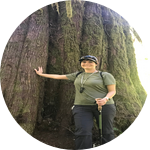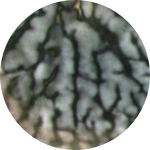About This Project
We will engage and train the local citizen science biological community in the DNA Barcoding of Mushroom species of the Pacific Northwest. Through this project we will possibly identify species, add valuable information to iNaturalist and GenBank, and determine which species require further taxonomic exploration.
Ask the Scientists
Join The DiscussionWhat is the context of this research?
Mycology has a proud history of citizen science. For instance beloved children's author Beatrix Potter contributed beautiful and accurate drawings of fungi! While there is debate about how many undiscovered fungi species there are, even conservative estimates are that there are more than a million.
The widespread use of DNA barcoding has caused a major upheaval in mycological taxonomy, with many species being moved into different groups, and changing names many times over. It is an exciting and daunting time in the field! DNA bar coding involves the identification of species using a short segment of DNA.
We became inspired by the efforts of citizen science projects such as the Continental Mycoblitz Project that aim to document fungal diversity using Barcoding.
What is the significance of this project?
This project will allow us to engage members of Vancouver Mycological Society, Open Science Network (which has the equipment needed for DNA extraction, PCR, and gel electrophoresis), and the wider biology community in exploring the vast world of fungi. Participants will learn the essential steps needed to identify mushroom species using DNA barcodes. Specimens and sequences contributed by participants will be submitted to the UBC Herbarium (Beaty Biodiversity Museum) and become available to the broader scientific community.
What are the goals of the project?
The goal of this project is to engage the local biology community in DNA Barcoding of fungi, and lay the foundation so people can explore their passion for mycological research. We will conduct workshops that allow people to learn how to use DNA barcoding, and generate helpful resources on protocols, lessons learnt, write a summary of identified species, and taxonomic areas which could benefit from further exploration. An important part of this project will be connecting with others engaged in barcoding projects, and in academic mycology, to seek guidance and share findings. We will upload high quality photos to iNaturalist with descriptive notes, and sequence data to GenBank so it can inform other research, and liaise with herbariums regarding the vouchering of important specimens.
Budget
The budget will help us accomplish our aim as it will cover the costs of purchasing reagents to perform DNA extraction/ PCR at the Open Science Network lab. The cost for Sequencing/Shipping will go towards mailing out samples for sequencing to a lab. The stipend will go towards the preparation and teaching of the workshops.
Endorsed by
 Project Timeline
Project Timeline
In July, the project will determine taxonomic focuses, specimen numbers, and engage with the biology community. Collection and PCR will start mid-July. October will focus on sequence analysis and community workshops. November will be for sequence analysis. Potential setbacks include PCR delays, mitigated by mentorship or outsourcing. Weather-dependent mushroom collection may shift the timeline. Workshops can proceed with partial success, focusing on interpretation and troubleshooting.
Jul 15, 2024
Selection of taxonomic focuse(s)
Jul 15, 2024
Community engagement: VMS, OSN, SVIMS, and other relevant groups and individuals.
Jul 30, 2024
Project Launched
Sep 15, 2024
Specimen collection: Vancouver area, Manning Park (TBD pending research permit application approval), Fungus Amongst Us festival (TBD)
Oct 01, 2024
PCR: extractions, PCR, gel (involve community for teaching when possible)
Meet the Team
Team Bio
I am lucky to have an experience mycologist, Dr. Ludovic Le Renard, working alongside me. Ludo studied mycology in France, and moved to BC to complete a Phd. He owes much of his mushroom identification skills to VMS. He would like to engage interested VMS members with the more technical aspects of mycological research. The present project would be a great opportunity for him to further train citizen-scientists and help them contribute data that is also valued by academic researchers.
Jade Hopkins
I went to my first VMS meeting in 2017, and ever since then have fallen in love with the weird and wonderful world of fungi. I am fascinated by their ingenious and often bizarre adaptions to life. I have started learning how to do PCR because I think DNA barcoding is a valuable contribution I can make to mycology, and would love to help others explore this exciting area.
Of particular interest to me are the Mycenas, a genera of tiny mushrooms which can be hard to characterize. I think citizen science can make helpful contributions to scientific study.
Ludovic Le Renard
BC Mycologist, I studied fungal evolution at the University of British Columbia. An active member of the Vancouver Mycological Society, I am chair of the VMS education committee where I contribute to teaching mushroom identification, including the use of DNA sequences as biodiversity barcodes.
Project Backers
- 19Backers
- 104%Funded
- $2,675Total Donations
- $140.79Average Donation


